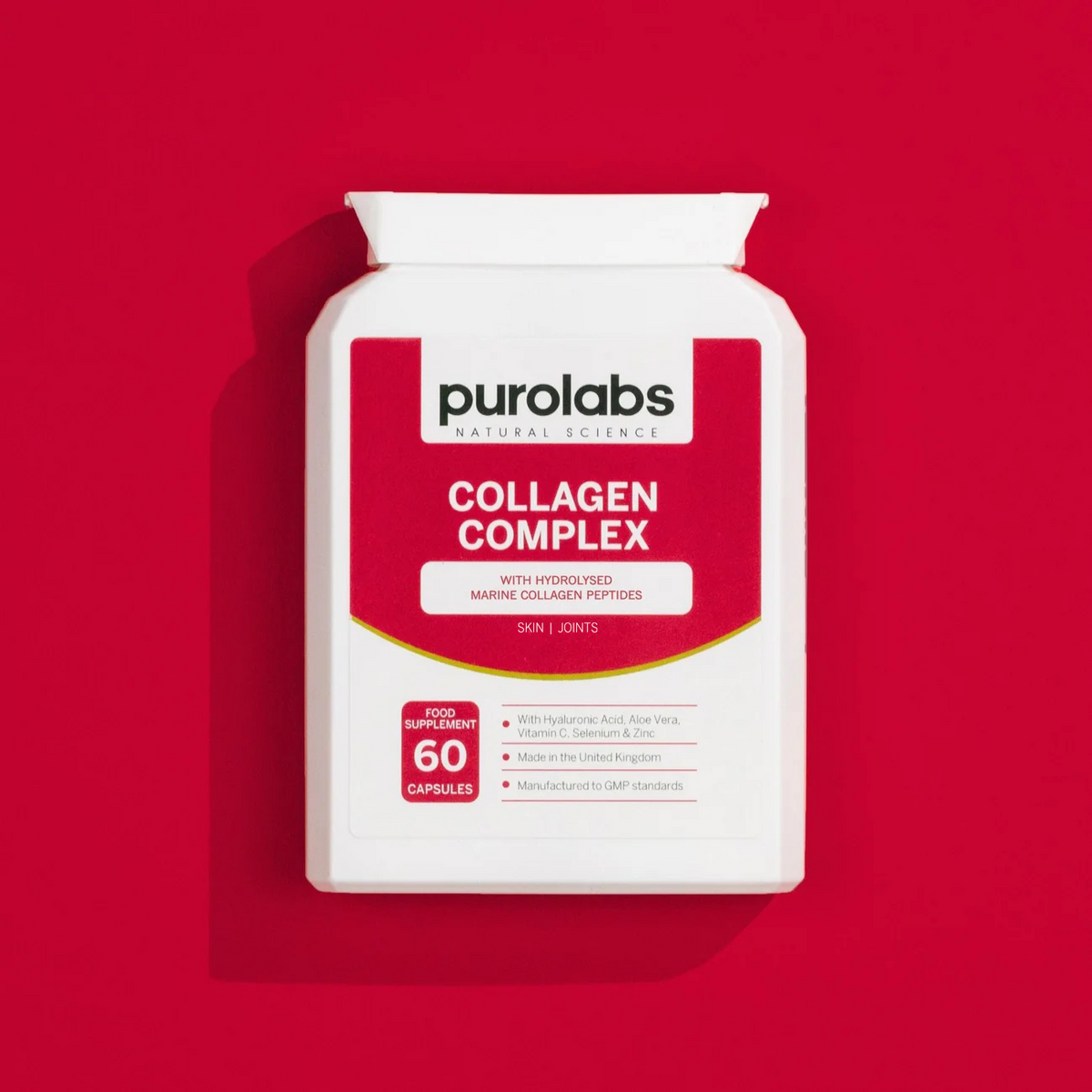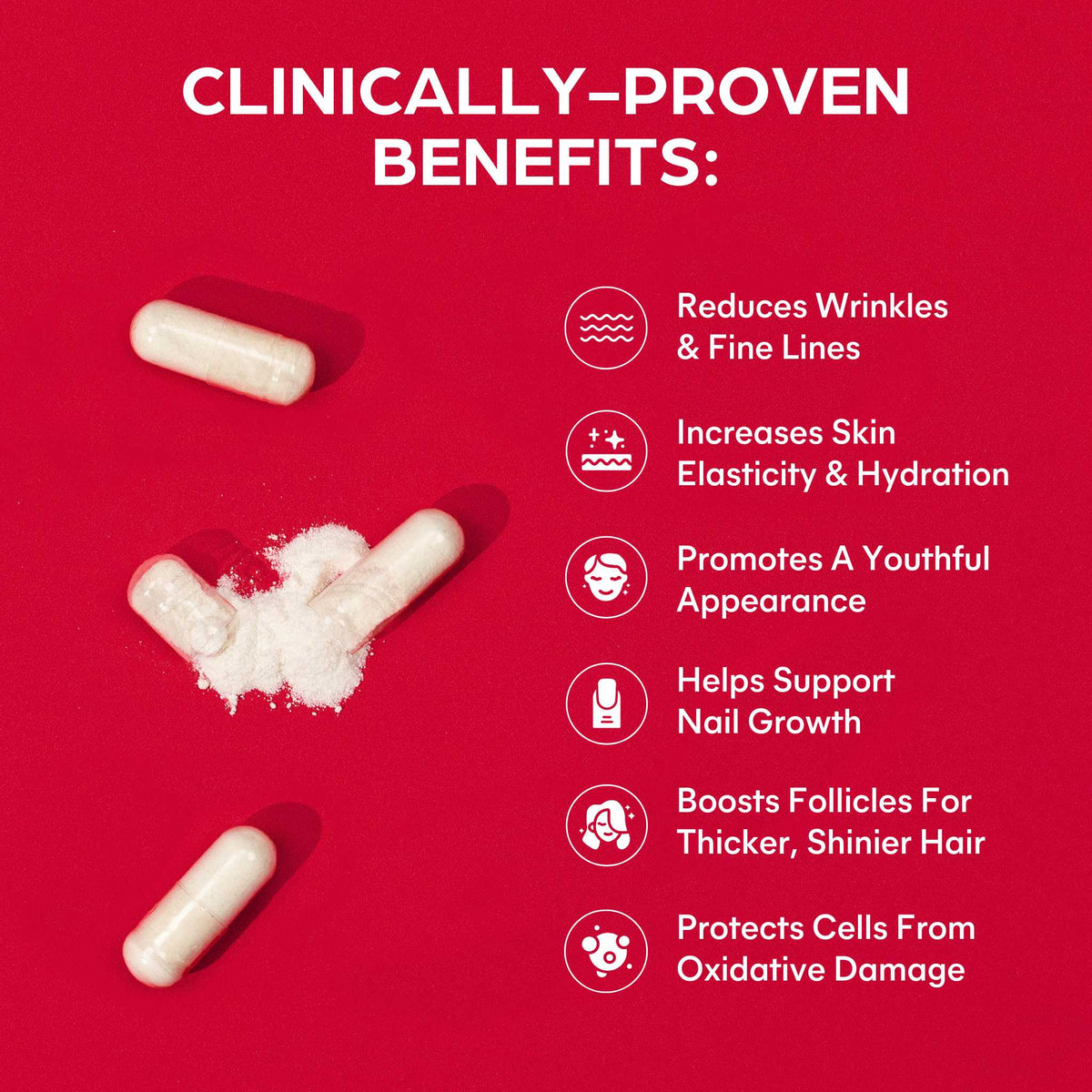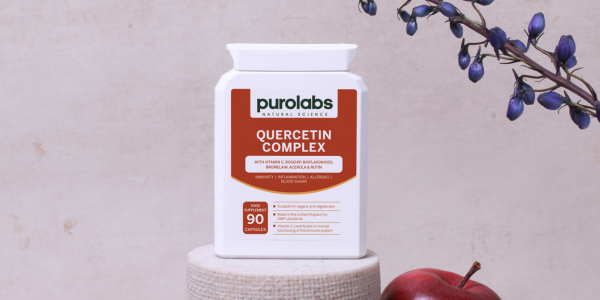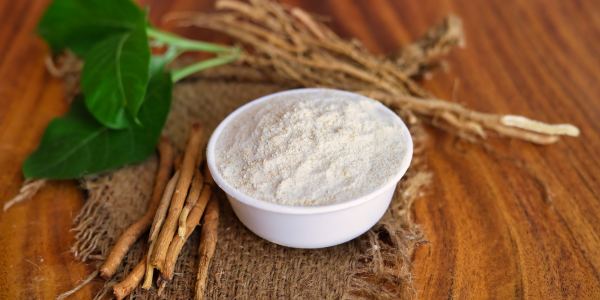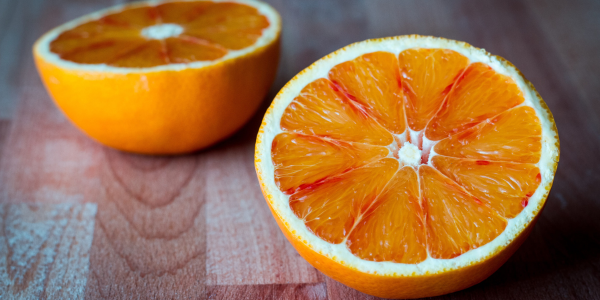Quercetin is part of a group of antioxidant plants called flavonoids and has been growing in popularity in recent years.
The antioxidant was first named in 1857 and was derived from quercetum (oak forest). It has since been found to be one of the most abundant dietary flavonoid, with the average daily intake of 25-30mg.
Flavonoids are sourced from the skin of colourful fruits and vegetables and even give polyphenol-rich red wine its signature colour.
What is it that makes quercetin such a profound and important nutrient for overall human health and wellbeing? Read on to find out more…
Boosts Gut Health
The benefits of flavonoids are becoming increasingly well-known. Flavonoids are establishing themselves as star ingredients in popular supplements because of their beneficial impact on gut health, which, we have all come to learn is the centre of human health.
Improving your gut health can have the single most profound impact on your health and longevity. The studies when it comes to our gut and more specifically, our gut microbiome all point to an incredibly amount of data which connects our gut to many aspects of our health and wellbeing.
Studies are showing that flavonoids play a significant role in gut health. Flavonoids have been shown to beneficially alter gut bacteria by inhibiting the growth of various pathogenic bacteria in the gut and boost beneficial bacterial strains of Bifidobacterium and Lactobacillus. These strains are well studied for their impact on gut microbiome and are key players in the human gut microbiota1.
Whilst the literature on gut health is ever expanding and currently a very exciting field when it comes to human health, there is so much more to explore about the human microbiome.
However, what we do know is that a preferential ratio of good to bad gut bugs improves many areas of health, including:
- Managing metabolic conditions like type 2 diabetes, obesity and cardiovascular disease
- Helps to regulate and support our immune system2
- Protecting the gut from infections3
- Reducing inflammation
- Supports the gut-brain axis, potentially improving wellbeing, mood disorders and reducing cognitive decline4
Supports Skin Health
Plant flavonoids are wonderful for skin health and can help improve all aspects of skin integrity ranging from ageing, dryness to helping combat inflammatory and auto-immune skin conditions.
Studies have shown that when flavonoids are applied to the skin, it may reduce sunburn, the signs of skin ageing, and skin damage caused by UV light.
As flavonoids are antioxidant in nature, they help to mop up inflammatory by-products (free radicals) and help to safely remove them from the body. Free radicals are unstable atoms that damage human cells through inflammatory processes. Modern living increases our exposure to environmental free radicals, making an anti-inflammatory diet and antioxidant intake more important than ever.
I personally advise my skin clients to increase their intake of plant antioxidant foods and supplements to help reduce skin inflammation, whether that be to help support conditions like acne and eczema as well as psoriasis and dermatitis.
Studies have even shown that an increase in plant flavonoid intake can help to absorb ultraviolet radiation to help modulate cancer through inflammation signalling pathways5.
A Must-Have for the Allergy-Prone
A fascinating test-tube discovery was made with quercetin and a reduction in histamine levels. Quercetin may help to stabilise the immune cells which release histamine, therefore potentially helping those who are prone to allergies and those with auto-immune conditions.
Quercetin has therefore been shown to help reduce symptoms such as6:
- Water eyes
- Runny nose
- Swelling in the face and lips
- Hives
Whilst the studies on quercetin and allergies are in their infancy, this is encouraging for those who are prone to seasonal allergies like hay fever. Quercetin could be a natural and antioxidant rich alternative to over-the-counter antihistamines7.
May Improve Vitality & Endurance
In recent years, quercetin has been added to many sports supplements due to a potential association between the antioxidant and increased blood flow. A research paper, published by Georgia Institute of Technology uncovered a statistically significant association between taking quercetin supplements and improved endurance capacity (VO2 max) and performance8.
The results do reflect the literature that supports the notion that antioxidants could improve physical endurance as they do boost blood flow, helping to facilitate the movement of oxygen and nutrients to muscle and high output tissues.
Supports Heart Health
Quercetins antioxidant benefits make it a potentially important nutrient for those who are at higher risk of cardiovascular disease. Antioxidants have been long studied for their benefits on heart health, with inflammatory processes being key drivers behind the pathologies that underpin poor cardiovascular health.
This powerful antioxidant has been shown to help with antiplatelet aggregation, reducing myocardial fibrosis as well as regulating heartbeat and blood pressure (pretty large claims!). Again, whilst the studies are in vitro, they are promising in nature and may provide us with more natural alternatives to those looking for preventative measures for heart disease.
May Help Fight Pain
Taking quercetin may help to reduce pain-induced symptoms related to auto-immune conditions such as arthritis and prostatitis (inflammation of the prostate).
In-vitro studies also suggest that quercetin may reduce bladder pain from urinary tract infections, and help to reduce the symptoms of urgency to urinate, swelling and pain). Again, whilst there needs to be more evidence to compound this health benefit, quercetin does have immune fighting properties, which can potentially help to fight inflammatory infections.
Foods
Fruits and vegetables are the primary dietary source of quercetin, in particular9:
- Citrus fruits
- Apples
- Onions
- Parsley
- Blackberries
- Olive oil
- Dark cherries
- Ginger10
Wine and tea are also two beverages that are high in quercetin. However, not all teas and wines are created equally, and the manufacturing process dictates just how much quercetin can be found in these food sources.
Opting for organic is imperative, however we must also factor in that these beverages do contain alcohol and caffeine, which can impact our liver’s ability to detox toxins which will impact how that antioxidant is used by the body. Therefore, I would advise to not opt for wine or tea if you are looking to boost your dietary intake of plant flavonoids.
Whilst plant intake of flavonoids are a great source of quercetin, if you are looking for a therapeutic dose of quercetin, then supplementation is a controlled way of ensuring that you are receiving a potent and clean daily dose of this life-giving antioxidant.
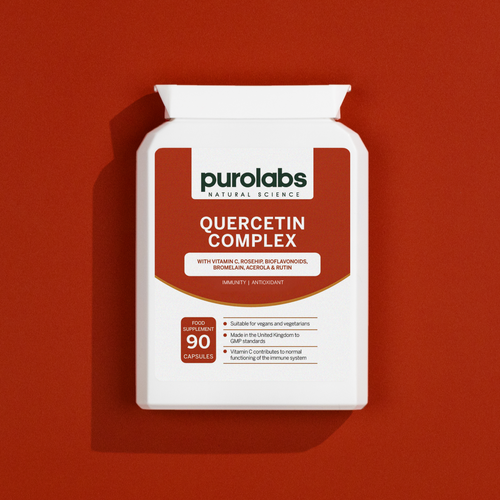
Quercetin Complex
It is also important to note that whilst the evidence is promising, we require more published scientific literature to compound the effects of quercetin on human health. If you do suffer from any of the above health complaints, then quercetin may be a beneficial addition to your daily health toolkit.

 Beauty
Beauty
 Bone Health
Bone Health
 Brain Health
Brain Health
 Energy
Energy
 Eye Health
Eye Health
 Gut Health
Gut Health
 Hair
Hair
 Hormonal Health
Hormonal Health
 Heart Health
Heart Health
 Immunity
Immunity
 Joints
Joints
 Menopause
Menopause
 Pregnancy
Pregnancy
 Kids
Kids
 Sleep
Sleep
 Stress & Mood
Stress & Mood





